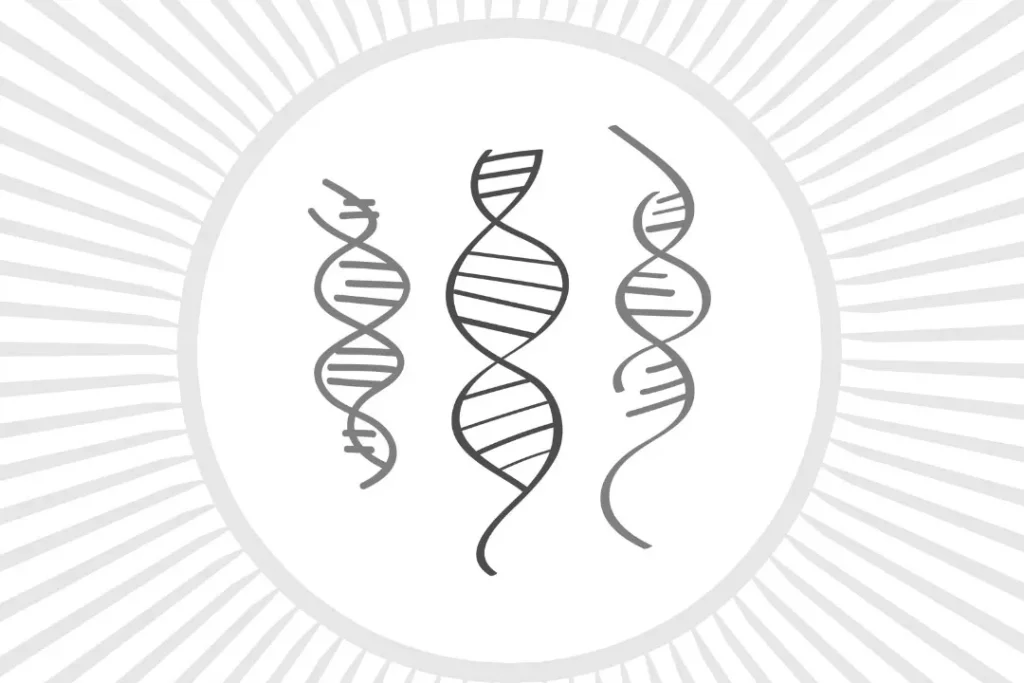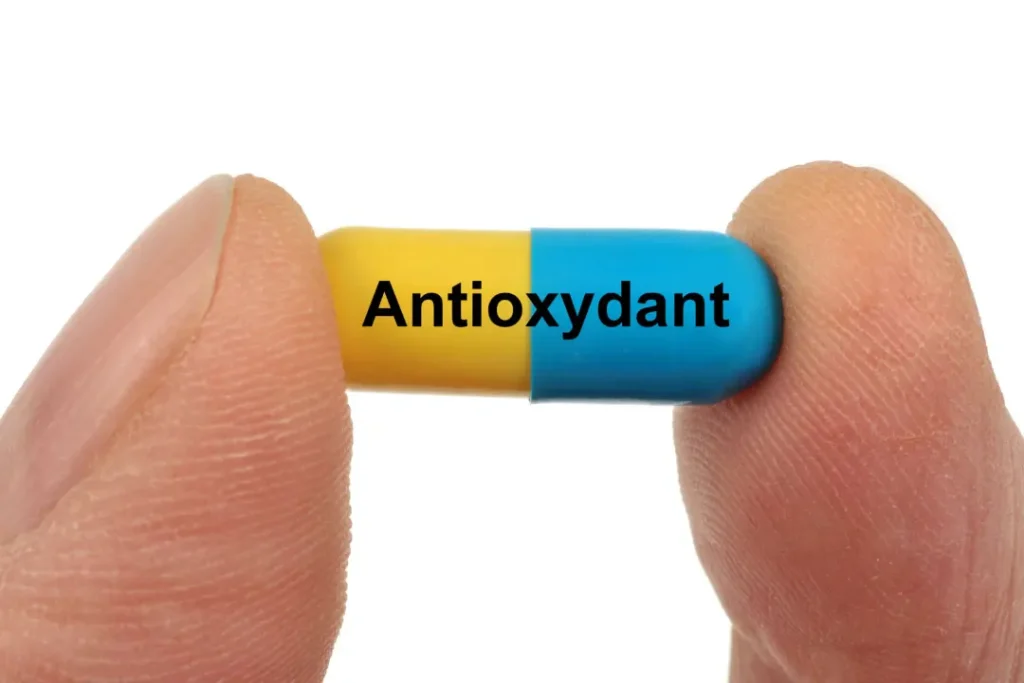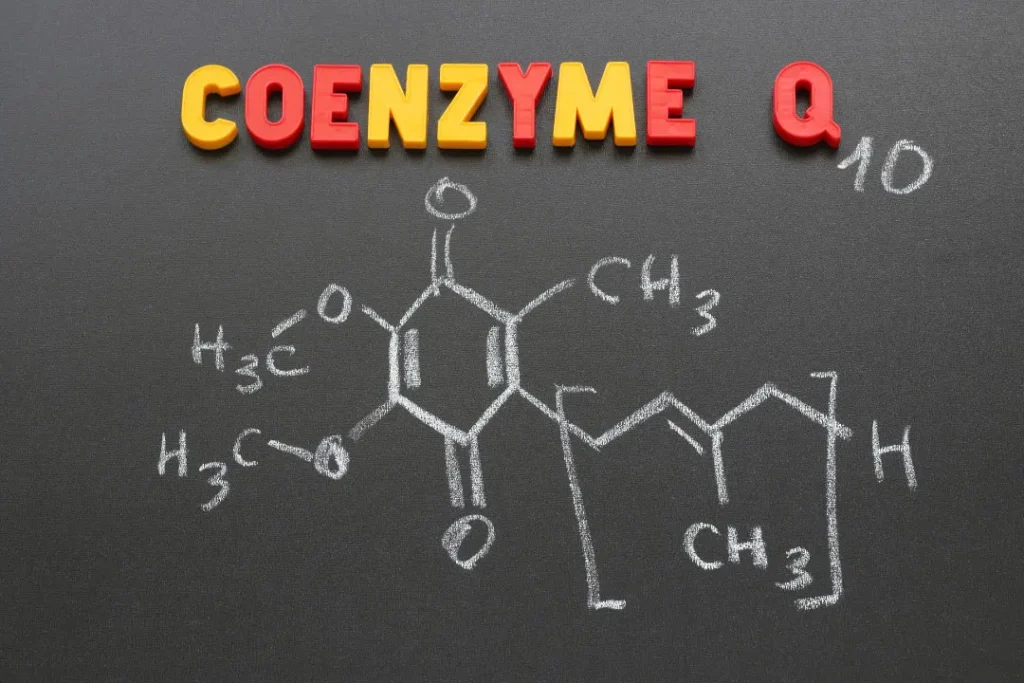Coenzyme Q10 is a popular antioxidant supplement promising healthier cells and increased energy levels, but is there something better out there? We’ll compare two leading antioxidant supplements: Kirkland CoQ10 and MitoQ, so that you can make an informed purchase decision.
Your body is composed of approximately 50 -100 trillion cells, which are categorized into over 200 types specifically designed for their respective duties; from making proteins and other chemicals to forming organ tissue, cells provide the structure and function of life. These tiny biological machines need to be maintained to keep you healthy.
You May Also Like:
5 Great Reasons to Try CBD Massage Oil for Pain Relief
Finding the Best Valerian Root Supplement: 5 Top Brands Reviewed
Cellular health and the ongoing war against free radicals
Maintaining cellular health involves nourishing and protecting cells from damage caused by free radicals. A free radical is an unstable molecule with only one electron or an unpaired electron. In order to stabilize itself, the free radical takes an electron from a molecule in any nearby healthy cell through a process called oxidation. This process causes oxidative damage that negatively impacts cell components such as proteins, DNA, and membranes, causing the cell to malfunction or even die. Studies have linked oxidative damage to various health problems, including inflammation, aging, and chronic diseases like cancer, diabetes, and heart disease.
Several factors can cause the formation of free radicals, including:
- Normal metabolic processes (free radicals are a byproduct of cells creating energy)
- Excessive exposure to UV radiation
- Pollution
- Pesticides
- Smoking
- Alcohol consumption
- Poor nutrition, especially a diet lacking in antioxidants

Antioxidants – the first line of defense against free radical damage
Antioxidants are natural (found in foods) or manufactured substances that protect your cells from damage caused by free radicals. Antioxidants work by donating an electron to the free radicals, which stabilizes and neutralizes them. By doing so, antioxidants keep cells safe and healthy. Additionally, antioxidants are involved in mechanisms that repair DNA and maintain cell health.

CoQ10 – the antioxidant superhero
Coenzyme Q10 (CoQ10), also known as ubiquinone, ubiquinone-Q10, ubidecarenone, and vitamin Q10, is a naturally occurring molecule found in every cell of the human body. It plays two critical roles – as an antioxidant and a coenzyme.
Like other antioxidants, CoQ10 protects cells from free radical damage. Additionally, it can recycle and increase the absorption of other essential nutrients like vitamins C and E, maximizing their effects.
As a coenzyme, CoQ10 performs a different but equally important function. Enzymes are proteins that hasten chemical reactions in cells, and a coenzyme assists in this function. Specifically, CoQ10 helps transport electrons within cell mitochondria, which are the energy-producing organelles in cells. This process is necessary for producing ATP (adenosine triphosphate), the primary energy source for cells.

When CoQ10 supplements like Kirkland CoQ10 or MitoQ may be beneficial
Supplementation may be beneficial if your body has lower levels of CoQ10 due to taking certain medications such as:
- Statins, which are used to manage cholesterol levels
- Antidepressant medications
- Beta-blockers for high blood pressure
CoQ10 levels may be reduced due to health conditions, such as:
- Age-related decline – CoQ10 levels naturally decline with age
- A diet lacking foods containing CoQ10
- Chronic diseases like heart disease, diabetes, and cognitive disease
- Genetics, which can affect the production or utilization of CoQ10
- Chronic stress
- Exposure to environmental toxins such as pollution and pesticides
Potential health benefits from CoQ10 supplementation may include:
- Improving cardiovascular health: CoQ10 can help reduce inflammation, improve blood flow, and promote healthy blood pressure levels
- Supporting brain health: CoQ10 can protect brain cells from oxidative damage, contribute to healthy brain aging, and potentially improve symptoms of neurodegenerative diseases
- Reducing migraine frequency: CoQ10 supplementation may lessen the frequency and severity of migraines
- Helping to manage diabetes: CoQ10 has been shown to improve glucose control and potentially reduce the risk of diabetes-related complications
Now let’s look at our two contenders: Kirkland CoQ10 and MitoQ.

Kirkland CoQ10 overview
Kirkland CoQ10 is a supplement manufactured by Kirkland Signature, a brand owned by Costco Wholesale Corporation. Each capsule contains 300 mg of Coenzyme Q10 (ubidecarenone).
Benefits of Kirkland CoQ10:
- A good option for individuals requiring a higher dose of CoQ10
- An affordable option, considering the number of softgels included and the 300mg per capsule.
Downside:
Ubidecarenone, the form of CoQ10 used by Kirkland, is a large fat-soluble molecule. This makes it difficult to digest in the watery environment of the small intestine, resulting in a lower effectiveness and product waste.
MitoQ overview
MitoQ is manufactured by MitoQ Limited, a New Zealand-based company founded in 2005. CEO Mahara Inglis says: “…as the world’s first mitochondria targeted antioxidant, a lot of time and money has gone into the research and development of MitoQ to ensure our product is the best antioxidant on the market, with superior absorption and effectiveness.”
MitoQ contains mitoquinol mesylate, a unique form of Coenzyme Q10 engineered to target cell mitochondria, where most free radical damage occurs. Using a patented process, the CoQ10 molecule in MitoQ is made smaller and given a positive charge. The positively charged MitoQ molecule attracts the negatively charged mitochondria, allowing MitoQ to easily cross the mitochondrial membrane.
Benefits of MitoQ
Bioengineered to directly target cell mitochondria (where it’s most needed), making it easy for your body to absorb and use – resulting in little to no product waste.
Downside:
MitoQ costs more than Kirkland CoQ10.

Head-to-head comparison of Kirkland CoQ10 vs. MitoQ – MitoQ wins!
Ingredients Comparison
Both Kirkland CoQ10 and MitoQ contain Coenzyme Q10 as their primary active ingredient. However, MitoQ uses a more advanced form of CoQ10 called mitoquinol mesylate, which is bioengineered to target mitochondria. This gives MitoQ a significant edge over Kirkland CoQ10 in terms of absorption and bioavailability.
Dosage Comparison
Kirkland CoQ10 contains 300 mg of Coenzyme Q10 per capsule, while MitoQ includes 10mg of mitoquinol mesylate per serving (2 capsules). While the dosage of CoQ10 in Kirkland CoQ10 appears higher, it’s important to note that MitoQ is more readily absorbed by the body; therefore, the lower dosage of MitoQ is likely to be more effective and less wasteful.
Effectiveness Comparison
Kirkland CoQ10 and MitoQ can effectively provide antioxidant protection and promote energy production. However, MitoQ is a more effective antioxidant due to its superior absorption and targeted delivery to cell mitochondria.
MitoQ wins over Kirkland CoQ10 in the battle of antioxidants
MitoQ outperforms Kirkland CoQ10 in several aspects – MitoQ boasts a better absorption rate, stronger antioxidant activity, higher bioavailability, and potential for improved mitochondrial health. Moreover, research on MitoQ includes over 600 papers and numerous clinical trials showing that MitoQ works faster and is more potent and effective than other forms of CoQ10.
Overall, MitoQ is an excellent choice for people looking to support and improve their cellular health.
Final thoughts on CoQ10 supplementation
The initial step in combating free radicals is to make lifestyle choices that support your body’s natural defenses against them, such as eating a healthy diet rich in antioxidant foods, exercising regularly, and getting quality sleep. However, circumstances including age, illness, use of certain medications, or injury may indicate that CoQ10 supplementation could be beneficial.
For Further Research:
Mt. Sinai New York – Coenzyme Q10 Information
Cleveland Clinic – Why You Should Care About Free Radicals
Frontiers in Physiology – Mitochondrial-targeted antioxidant supplementation for improving age-related vascular dysfunction in humans: A study protocol
Mary Ann Liebert, Inc. Publishers – Molecular Strategies for Targeting Antioxidants to Mitochondria: Therapeutic Implications
Hindawi Journals – The Effect of MitoQ on Aging-Related Biomarkers: A Systematic Review and Meta-Analysis
Drug Bank Online – Ubidecarenone: Uses, Interactions, Mechanism of Action
Drug Bank Online – Mitoquinone: Uses, Interactions, Mechanism of Action
Important Note: The information contained in this article is for general informational purposes only, and should not be construed as health or medical advice, nor is it intended to diagnose, prevent, treat, or cure any disease or health condition. Before embarking on any diet, fitness regimen, or program of nutritional supplementation, it is advisable to consult your healthcare professional in order to determine its safety and probable efficacy in terms of your individual state of health.
Regarding Nutritional Supplements Or Other Non-Prescription Health Products: If any nutritional supplements or other non-prescription health products are mentioned in the foregoing article, any claims or statements made about them have not been evaluated by the U.S. Food and Drug Administration, and such nutritional supplements or other health products are not intended to diagnose, treat, cure, or prevent any disease.



